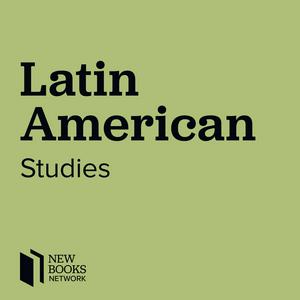Maron E. Greenleaf, "Forest Lost: Producing Green Capitalism in the Brazilian Amazon" (Duke UP, 2024)
Forest Lost: Producing Green Capitalism in the Brazilian Amazon (2024) is an ethnography of forest carbon offsets and the wider effort to make the living rainforest valuable in the Brazilian Amazon. Situated in the state of Acre, which continuously had to grapple with a complex positionality between frontier and periphery, Maron E. Greenleaf explores forest carbon offset to understand green capitalism. Commodifying forest carbon offset requires keeping carbon in place through forest protection and valuation, unlike other forest commodities – for example Açaí berries, which also feature in the ethnography – that involve extraction. Initially set out to do a supply chain analysis, Greenleaf instead wrote a well-thought-out account disentangling the relationships at play in a place which at the time was celebrated for being ‘a leader in forest- focused development’, through tracing the complexity of the uneven, contingent and contesting cultural, material and multispecies relations involved in making forest carbon valuable. At the same time, she illustrates how forest carbon’s commodification turned it into a source of redistributable public environmental wealth and how green capitalism can also reinforce just the marginalization it seeks to combat. By outlining these complex relations and tensions, Greenleaf elucidates broader efforts to create a capitalism suited to the Anthropocene and those efforts’ alluring promises and vexing failures.
Mentioned in this episode:
Anand, Nikhil. Hydraulic City : Water and the Infrastructures of Citizenship in Mumbai. Duke University Press, 2017.
Appadurai, Arjun, et al. The Social Life of Things : Commodities in Cultural Perspective. Edited by Arjun Appadurai, Cambridge University Press, 1986.
Holston, James. Insurgent Citizenship : Disjunctions of Democracy and Modernity in Brazil. Princeton University Press, 2008.
Maron E. Greenleaf is a cultural anthropologist, political ecologist and legal scholar and currently Assistant Professor at the Anthropology Department at Dartmouth. She is interested in how human and more-than-human relationships are shaped through efforts linked to environmental crisis. Her topics of interest include landscapes, green economies, environmental justice and land rights.
Olivia Bianchi is a postgraduate student at the University of Oxford, currently finishing the MSc program in Visual, Material and Museum Anthropology. Her interests include anthropological inquiries into materials, especially textiles, as well as the topics of sustainability and waste more generally.
Learn more about your ad choices. Visit megaphone.fm/adchoices
Support our show by becoming a premium member! https://newbooksnetwork.supportingcast.fm/latin-american-studies

